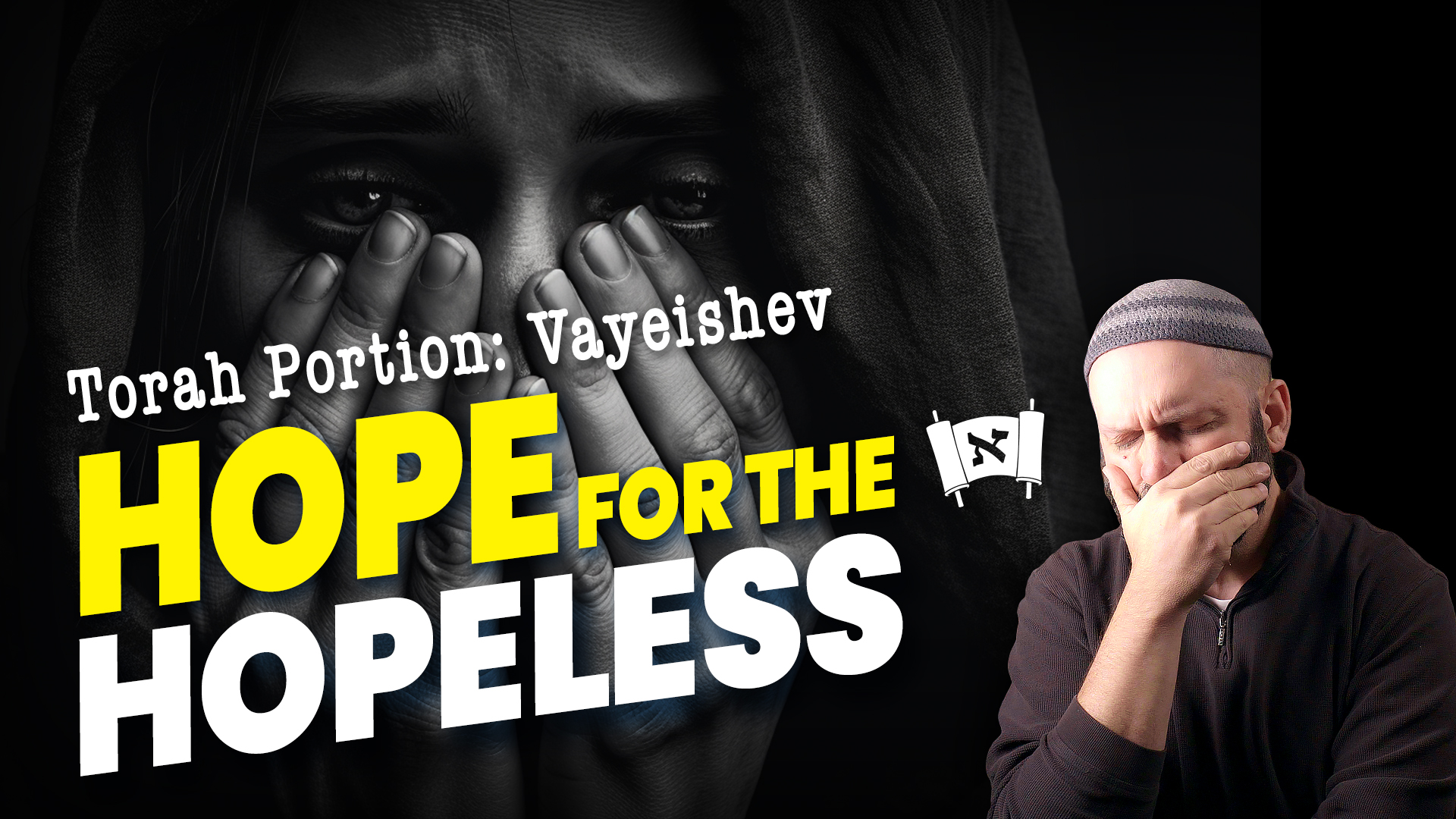No Rest For The Weary
Series:

Parashat Vayeishev (Genesis 37:1-40:23)
Our parashah begins by telling us, “Jacob dwelt in the land of his father's sojournings” (Genesis 37:1). This statement contrasts the actions of Jacob with that of his father, Isaac. Whereas Isaac was only able to sojourn through the land of Canaan, Jacob was able to take up residence there. It seems to imply that Jacob did not have the hardships of his father, Isaac. However, the very next verse begins, eileh toldot Ya’akov Yosef, “These are the generations of Jacob: Joseph” (verse 2). What does this mean? It means that Jacob’s life was wrapped up in Joseph. Therefore, the essence of his life was robbed when Joseph was taken from him in the following verses. Let me explain.
Joseph was the apple of Jacob’s eye. He was the long-awaited firstborn son of his beloved and recently deceased wife, Rachel. Jacob treated him differently than the rest of his children, to the point of even giving him a special garment that distinguished his affection for Joseph from his siblings. However, we find out that Joseph is taken from Jacob through a ruse by his brothers that makes his father believe he is dead. Because of this Jacob is grieved to his very core and refuses to be comforted even after many days of mourning, saying, “No, I shall go down to Sheol to my son, mourning” (Genesis 37:35). Thinking his son dead, Jacob resolves himself to a life of bitterness and grief.
Rashi, commenting on verse 2, says that although Jacob dwelt in the land of promise, his troubles did not vanish. Life simply became more difficult: “When Jacob sought to dwell in tranquility, the troubles of Joseph sprang upon him.” Although he may have longed for a season of respite after years of his own sojourning, peace and tranquility were not to be found. We enjoy it when stories end with, “And they lived happily ever after,” but the harsh reality of this life is that pain and suffering endure; they follow a man to his grave. From Jacob’s perspective, his life would not end with “happily ever after.”
Why didn’t Jacob have the right to finally enjoy his final days in peace, without the hardships of losing of both Rachel and Joseph? Why did he have to suffer such hardships, bearing the bitter harshness of life? The midrash brings a difficult answer to this problem:
R. Aha said: When the righteous wish to dwell in tranquillity in this world, the Satan comes and accuses them: “They are not content with what is in store for them in the Olam Haba (the World to Come), but they wish to dwell at ease even in this world!” (Genesis Rabbah 84:3)
This situation rings true for many people. Sometimes we wonder when we can get past crisis mode and simply enjoy life. Many people retire thinking they will be able to enjoy some “down time,” but then are faced with some of the most difficult challenges of life. Life isn’t fair. As the midrash teaches us, there is simply no rest for the weary and surely none for the righteous. James, the brother of our Master, tells us that we must endure these trials with joy, for they serve to mold us into what the LORD desires us to become:
Count it all joy, my brothers, when you meet trials of various kinds, for you know that the testing of your faith produces steadfastness. And let steadfastness have its full effect, that you may be perfect and complete, lacking in nothing. (James 1:2–4)
Similarly, the Apostle Paul tells his readers that this life is fleeting, but that we have a hope that endures beyond this life:
We do not lose heart. Though our outer self is wasting away, our inner self is being renewed day by day. For this light momentary affliction is preparing for us an eternal weight of glory beyond all comparison, as we look not to the things that are seen but to the things that are unseen. For the things that are seen are transient, but the things that are unseen are eternal. (2 Corinthians 4:16–18)
Just as the story of Joseph wasn’t over for Jacob, the story of our lives is not over yet either. Although we may only be able to see a dark and bleak existence surrounding us, the reality of Hashem’s love and mercy are waiting around the corner if we can only see beyond the veil set before us. The Psalmist tells us, “Weeping may tarry for the night, but joy comes with the morning” (Psalm 30:6[5]). This life may be filled with heartaches and brokenness, but we await the day when our tears will be wiped away and our joy will be made complete as we are reunited with our Savior. May we hold firmly to the promise given through the prophet Isaiah:
They who wait for the LORD shall renew their strength; they shall mount up with wings like eagles; they shall run and not be weary; they shall walk and not faint. (Isaiah 40:31)








